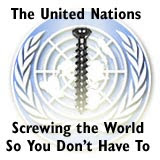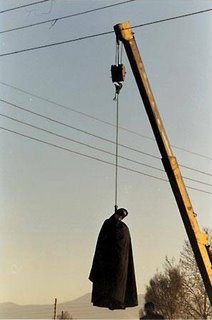Sunday, May 30, 2010
Friday, May 28, 2010
Monday, May 24, 2010
Sunday, May 23, 2010
Tea Party Coalition opens convention: Attendees say that Gatlinburg event's an opportunity to learn
By Mike Blackerby
Originally published 02:02 p.m., May 22, 2010
Updated 05:55 p.m., May 22, 2010
GATLINBURG - Attendees at Saturday morning's opening session of the Tennessee Tea Party Coalition's inaugural statewide convention vowed to fight for and promulgate their conservative beliefs.
And they drew kudos for standing by their convictions from one of the guest speakers, Pamela Geller, whose presentation titled "The Threat of Islam" has come under fire by a national Muslim-rights group that considers her anti-Islamic.
The Council on American-Islamic Relations had pushed for Geller - who heads a group called Stop Islamization of America - to be dropped from the convention's lineup of speakers.
"Thank you for having the guts to have me speak," said Geller, whose comment received a standing ovation and enthusiastic applause from an overflow crowd of about 300 at the Gatlinburg Convention Center meeting room.
"You think you're in a little room in Gatlinburg, but this is a battlefield in the information war," said Geller, who labeled CAIR's attempt to censor her as just another example of the Islamization of America.
"They try to shut up everybody who speaks against them. How dare they attack one human thought while they try and impose shariah law in America? They smear all of us so nobody will hear what we say. I am warning you that freedom of speech is the line in the sand."
Anthony Shreeve, one of the convention organizers, said the Tennessee Tea Party Coalition has received overwhelming support for its decision to retain Geller as a speaker.
"We've had about 1,000 e-mails pour in, and 800 were positive for Pam," said Shreeve, who lives in Dandridge.
"The other 200 said we were a bunch of racists and slimebags - we've heard it all before."
Geller was just one of many guest speakers at the convention, which wraps up today.
Shreeve said 1,000 advance tickets had been sold by Friday and he expects upwards of 2,000 to attend the convention, which also features workshops, discussions and educational instruction on topics such as Constitutional law.
There are 43 state Tea Party groups, which have 18,000 members.
"I'd like to see people get educated and come away from this by getting involved and being proactive - whether that means talking to your neighbor about the Constitution or getting involved in a campaign," Shreeve said.
About 15 members of the Lawrence County Tea Party made the five-hour drive from Middle Tennessee to attend the convention.
Lawrence County group members Mike and Ruth Gibson said there's a need for the Tea Parties to up the ante in the fight to advance the conservative cause of Constitutionally limited and less-intrusive government.
Both also said the Tea Party movement is unfairly portrayed by the media.
"We're here to educate ourselves about the Constitution and learn how to back up the Constitution as it's written," Mike Gibson said.
"Some people say that we're radical and that we're hurtful, but we are not terrorists," said Ruth Gibson. "What we need to do is grow our grassroots movement. We will get our country back."
Cheryl Mills, who is active in several Tea Party groups in the Tri-Cities area, said she got involved in the movement because of her children.
"I don't want them to say, 'Hey, where were you when this was going on?' " said Mills, who had her oldest daughter with her.
"Government has no respect for the Constitution of the United States. They walk on it come hell or high water."
Mike Blackerby is a freelance contributor to the News Sentinel.
Friday, May 21, 2010
Thursday, May 20, 2010
The Progressive Era
by William L. Anderson
by William L. Anderson
The Myth and the Reality
One of the most enduring set of myths from U.S. history comes from the political and social developments in what is called the “Progressive Era,” a period lasting from the late 1800s to the end of World War I. (Of course, one could argue, convincingly, that the Progressive Era never has ended.) The prevailing story told in textbooks, the editorial pages of the New York Times, and the typical classroom holds that this was the time when people began to use the mechanism of government to create the conditions for a better life for all and to begin the arduous process of reining in the excesses of capitalism.
According to the pundits, by the late 1800s many businesses in the United States had grown to gigantic proportions, monopolizing much of the economy. In response to this growing emergency, the government adopted new and “progressive” policies of regulatory agencies and antitrust laws.
Besides regulating business activity, Progressives, through coalitions of intellectuals, political figures, and activists, saw to it that government also began the process of regulating the extraction of natural resources through executive action. (Progressives considered the legislative procedure to be a waste of time that needed to be replaced with a mechanism that permitted the executive branch of government to seek “needed” shortcuts around the give-and-take that accompanied the legislature at work.)
Through Progressive prodding, Congress passed the Pure Food and Drug Act of 1906, which created the Food and Drug Administration and expanded government regulation of food and the workplace. Progressives also secured the right of women to vote and ended the state legislatures’ stranglehold on the national electoral process by mandating the direct election of U.S. senators (which until 1913 were chosen by state legislatures).
Socially, the Progressives were humanitarians who sought to better the lives of ordinary people, with their greatest “triumph” being passage of the Eighteenth Amendment, which ushered in the era of Prohibition. (Most modern Progressives are not particularly proud of this “achievement” by their forbears, but the prohibitionist spirit is much more alive than they would like to admit. Today, Progressive lawyers have been busy suing tobacco companies and the liquor industry and attempting to ban products such as silicon breast implants that feminists and other modern Progressives think are not proper things for people to have.)
Last, the Progressive Era trumpeted science and the “enlightened” Social Gospel, which became the religion of choice for religious skeptics who questioned the core doctrines of the Christian faith. From the implementation of “scientific” principles to govern politics, business, and social relationships, Progressivism helped to create a rational basis for modern society. From the creation of the Federal Reserve System to the Sixteenth Amendment that brought about the national income tax, Progressives were able to do away with the impediments created by the U.S. Constitution, which according to them stood in the way of progress.
If there was a downside to the Progressive Era, its modern supporters say, it was that Progressives were not able to do enough before “reactionary” post–World War I forces set in. “Reforms” such as the banning of child labor, minimum wages, the welfare state, further regulation of business, and a completion of the process of transferring legislative power from the Congress to the executive branch would have to wait until the Great Depression, when the nation had supposedly had its fill of laissez faire. Also, in spite of the best efforts of the Progressives, segregation laws institutionalized racism, which worsened strife between whites and blacks.
While Progressivism has captured the hearts and minds of modern intellectuals and others, there is another story to tell about this era, a much darker tale than what generally is told. In fact, it is not an exaggeration to say that Progressivism helped to destroy, not preserve, the constitutional order. Far from ushering in the social peace, justice, and prosperity that Progressives promised, Progressivism helped to create the conditions for the Great Depression and helped plunge the country into one war after another. Perhaps the only positive thing we can say about the Progressive Era was that it did not do all of the damage that it could have done.
In taking this look at the Progressive Era, I will be examining a number of social and economic initiatives that took place during that time. I begin with the social policies and laws that came about during that era and dissect Progressivism’s long and sorry legacy.
"How soon we forget history. Government is not reason; it is not eloquent; it is force. like fire, it is a dangerous servant and a fearful master."
General George Washington

Within The Symbol
WITHIN THE SYMBOL OF THE THIRTEEN STAR FLAG lies the meaning we seek to convey -- that ours was once a Republic born of ingenious political philosophy and a natural hunger for liberty. The greatest statesmen our nation has produced, before or since, dedicated their lives, their fortunes, and their sacred honor to the establishment of a new kind of government. They formed for posterity a system which, if preserved, would have done more to secure the happiness and prosperity of its citizens than any in the modern world. They correctly perceived that the attendant rights of liberty are reposed not in governments but in individuals -- that individuals are so endowed by their Creator. The proper role of government is not to grant that which it can never possess, but to protect that which it has so often tread upon. Our founders knew well that a government of men would not, in fact could not, exercise an enduring self restraint. Further -- they recognized what has been aptly termed the internal hydraulic pressure within governments to expand the boundaries of their own power. Restraint, they therefore expressly imposed. But such restraints are effective only so long as we adhere to their design. Increasingly, we fail to do so, and our Republic wanes as if by a wasting disease.
The Threat of Progressivism
The greatest threat to the American Republic is currently the muddled mass of confused and foreign-born ideologies operating under the rubric of progressivism. These are the acolytes of Environmentalism, Marxism, Globalism, and the like. They favor the redistribution of wealth; out from the hands that produce it, into the gaping mouths that cry the loudest. They view with contempt not only the Republic as it stands, but the Republic as it was and the memory of men that spent treasure and blood to establish it. These are the adherents of the philosophy of the "Other," first enunciated by the German philosopher Hegel -- demonstrably the greatest fraud in the history of philosophy. They loudly proclaim that America's success is the sum total of a series of racist genocides, thefts and other high crimes, without the victims of which the Republic could not stand. Our greatest flaw, they tell us, is the small-minded, myopic and violent way we choose to view the rest of the world -- their exalted Other. We hate the Other, they tell us, because the feeble-minded fear what they do not understand. We have failed to embrace the Other because, blinded by our wanton pursuit of self-interested greed, we have failed to bathe in their enlightened radiance. We have failed to see the obvious truths they espouse.
We reject these views in their entirety. Further, we consider them anathema. We agree with the founders that the property rights of individuals are sacrosanct and well worth the bloodied soil by which they were purchased. We neither hate nor fear the progressive's Other. We simply believe axiomatically that to such Other we owe nothing. For far longer than our Republic has existed there have been those among us that have the capacity to accurately judge the character of their fellows by looking them in the eye. In the eye of this Other we have seen one undeniable fact -- the Other intends to feed his own children. He does not intend to feed ours. For this he is not to be much condemned, but neither is he the proper object of our guilt, our charity, or our productive efforts. In our eyes, worship at the temple of the Other amounts to little more than national self-loathing. To sacrifice at the altar of the Other is to burn offerings, not for some amorphous greater good, but for The Abyss itself. And The Abyss can never be sated. In such folly we will not participate.
Government is not reason, it is not eloquence, it is force. Like fire, it is a dangerous servant and a fearful master.
-George Washington
That is not to say, respecting government, that one form is equal to the next. Some are surely more dangerous than others. Our Founding Fathers knew well the dangers posed to free men by government. Their every effort was to limit that threat by withholding from government all but the most necessary of public powers. They sought to further limit those dangers by the express enumeration of sectors of liberty into which government may not tread. These limitations are evinced most clearly, though not solely, by the language and structure of The Constitution of the United States. For this reason we have made copies of it available to our customers. Whether it be ours or any other proper copy -- please do read and re-read it.
Sadly, despite our Fathers' worthy effort, our Republic's current political apparatus seems to us a wholly inadequate means by which to meet the waxing threat of progressivism and socialist ideologies that seek to redefine the very foundation of the American Citizen. The current GOP seems an anemic remedy to the mounting damage being done by the incumbent DNC. Our future, whatsoever form it will take, may yet be determined by our own action. For our part, we advocate turning back to our American roots -- back to our traditions, our heritage, our culture, and faith in Our Creator. There may we find a cure for what ails us all.
Wednesday, May 19, 2010
Wahi: the Supernatural Basis of Islam
By Dr. Koenraad ELST
1. The yogic view of the Quranic trance
In discussing Islam, most non-Muslims and ex-Muslims tend to focus on the negative achievements of Islam, such as Islamic mistreatment of women and unbelievers. However, we should realize that in its essence, Islam is only secondarily an ethical system with a characteristic record of conduct. In the first place it is a belief system, a truth claim. The Islamic religion stands or falls with the truth or untruth of two assertions: (1) there is no God but Allah, the Creator of the universe; and (2) Mohammed is the final spokesman of Allah, who through him passed on to mankind a series of messages assembled in the Quran. This Quranic communication is understood to have been a constant process of "revelation" from AD 610, when Mohammed was 40, until his death in AD 632.
The first belief is a theological claim which Islam has in common with some other monotheistic religions, and which, if subjected to cunning interpretation, could even be reconciled with some schools of polymorphous-theistic Hinduism ("the wise call the one True One by many names"). The second belief, by contrast, is the truly defining truth claim of Islam, setting it apart from every other religion: the prophethood of Mohammed.
In this essay, originally published as a series of articles in the on-line monthly Kashmir Herald in autumn-winter 2002-2003, we will discuss some non-Islamic views of this core assertion of Islam. The present chapter will focus on the Hindu view of Mohammed's prophethood.
Before the colonial age, there was hardly any Hindu evaluation of Mohammed's prophetic claims, nor even of Islamic doctrine in general. The first detailed criticism of Islam, and in particular of the Quran, was written by Swami Dayananda Saraswati, founder of the Vedic reform...........MORE/FROM
Saturday, May 15, 2010
Friday, May 14, 2010
Saturday, May 8, 2010
Friday, May 7, 2010
Tuesday, May 4, 2010
Sunday, May 2, 2010
OIL RIGS UNDER ATTACK?
We have all heard quite a bit about the Deepwater Horizon Oil Rig which was attacked and sank in the Gulf of Mexico. Yes, attacked. And no, this isn't just another rehash of the conspiracy theory popping up on blogs everywhere about North Korea attacking. The aggressor may indeed be North Korea, but I haven't seen or heard anything which would support that.
That said, I understand that a certain media figure, whom I respect, is looking into this story, to see if it holds any water...and obviously, he'll only report on it if it's legit, so let's help him find the truth!
Now, to be clear, I haven't been able to independently confirm this, which is why I'm asking for your help. The truth is that I have no personal expertise with drill rigs and explosives, but I'm a reasonably intelligent fellow, and willing to learn. If any of you are in the industry and/or are experienced with explosives, and can confirm the factual basis for such speculation, I'd love to get independent confirmation of this line of thinking, and get even more of the truth out, or at least, confirm what I've already heard, so please contact me ASAP. And make sure your info is detailed, and where possible, with independently verifiable documentation.
And one only needs to remember every major disaster/attack to realize that the press seems to ALWAYS gets through to SOMEONE who was a survivor/witness. Yet not only are we not seeing those interviews, but we aren't hearing a peep from the press, clamoring that there's no access to the survivors.
And then there's the inconvenient truth that a SECOND OIL RIG went down later, but only a single news story has been done on it, and it was just a tiny blurb in Marketwatch. Scroll down past this first article to read the news of the SECOND oil rig to go down in a week.
I don't know about you, but I've NEVER heard of such a thing happening. Two oil rigs going down in the same month, in the same part of the world...have any of you ever heard of such a thing happening? Glenn Beck has encouraged us to not dismiss ANYTHING as a coincidence, and I think as 9.12'ers, we owe it to the dead workers' families to not just assume this was an accident, and let it fade down the memory hole.
Again, I want to be clear: WE DON'T YET KNOW. I want to see if we can learn, from those here on The 9.12 Project Network, what's up. We'll learn a lot more as time goes on, but I wanted to pass this along to our members, asking for more information from anybody in the industry. If you have more detailed information, and are willing to speak with me, or you know someone who does, and is, please contact me.
APRIL 22, 2010
BLAST JOLTS OIL WORLD
GULF RIG EXPLODES, 11 MISSING; POTENTIAL BLOW TO INDUSTRY
BY BEN CASSELMAN, RUSSELL GOLD AND ANGEL GONZALEZ

NEW ORLEANS—A massive fire on an oil rig in the Gulf of Mexico left 11 workers missing and cast a pall over an offshore drilling boom that stands to dramatically lift U.S. energy output.
Rescuers scoured the Gulf for the unaccounted workers late Wednesday as firefighters struggled to quench a towering fire that forced all aboard to flee.
The blaze on the Deepwater Horizon drilling rig, which broke out around 10 p.m. central Tuesday night, thrust a geyser of flames and smoke into the sky about 50 miles off the coast of Louisiana. Seventeen people were injured, three critically, rescue officials said.
The rig is operated for oil giant BP PLC by drilling contractor Transocean Ltd., which said the search for the cause of the fire would begin after the missing had been accounted for. But Transocean said one possibility that might explain the size and ferocity of the blaze is a blow-out, an uncontrolled burst of oil and natural gas from the well.
Some industry analysts said they feared the accident might temporarily damp the pace of oil development in the deepest reaches of the Gulf, which has become a significant exploration hotspot for international oil companies seeking new sources of petroleum. The industry is booming, and has been challenged by a tight supply of rigs and skilled workers.
The accident comes at a sensitive time politically for the industry. President Obama late last month proposed allowing drilling in new areas of the eastern Gulf of Mexico and off the southern Atlantic coast, where it was banned. Supporters argue the industry has become much safer. The Transocean fire could be an untimely reminder of risks.
"Is there a domino effect from this?" asked Arun Jayaram, a Credit Suisse analyst. "It seems like there would be some collateral damage." The incident could spark calls for increased regulation, said Kevin Book, managing director of ClearView Energy Partners, a consulting firm. The American Petroleum Institute, the industry's main trade group, put out a statement Wednesday standing by its safety record.
The incident could spark calls for increased regulation, said Kevin Book, managing director of ClearView Energy Partners, a consulting firm. The American Petroleum Institute, the industry's main trade group, put out a statement Wednesday standing by its safety record.
"Every incident is both one too many and a powerful incentive to improve training, operational procedures, regulations, industry standards and technology," the statement said.
The rig, which analysts said would cost $600 million to replace, was listing badly Wednesday, the U.S. Coast Guard said. A so-called semi-submersible, the rig is a nearly 400-foot-long floating platform that uses thrusters to hold it in place above a well. Transocean is the world's largest offshore drilling contractor, with more than 21,000 workers and 140 rigs, many of them state-of-the-art vessels capable of drilling through thousands of feet of water and miles of rock.
BP says it had just wrapped up exploratory drilling at the Deepwater Horizon's site and was in the process of analyzing the results at the well, which extends through 4,992 feet of water and another 13,000 feet under the seabed. BP, along with U.S. companies such as Chevron Corp., has announced significant oil fields in recent years.
Months of wrangling may ensue over responsibility for the fire. Transocean was largely in control of the drilling; BP had representatives aboard the rig who would have given instructions on where and how the contractor should drill.
Transocean executive Adrian Rose said at a press conference in New Orleans: "We are deeply saddened by this event." Company spokesman Guy Cantwell declined to comment on the rig's safety record.
Still, the fire may bring renewed public scrutiny to BP, as the incident comes five years after the explosion and fire at its refinery in Texas City, Tex., which killed 15 people.
BP says it stands ready to help with the investigation. It says has invested more than $1 billion to fix problems at Texas City, part of a multi-year program emphasizing safety.
In recent years, oil companies have pushed further offshore in search of oil, as older, easier oilfields dry up and foreign governments cut access to reserves.
The emphasis on deepwater exploration has led to a surge in construction of rigs capable of drilling in such depths. The number of deepwater rigs—capable of drilling in 3,000 feet of water or more—has grown 43% since 2006, according to research firm ODS-Petrodata.
The boom in rigs has strained contractors, which have struggled to find experienced workers to run them. Big companies such as Transocean have had to move workers onto newly built rigs, while also fending off new, smaller companies looking to hire away veteran crews.
Transocean has grown especially fast. In 2007 it merged with rival GlobalSantaFe in an $18 billion deal. Integrating the two companies has been a challenge, said Doug Sheridan, managing director of EnergyPoint Research, a firm that rates drillers and other oil service companies based on interviews with their customers.
Mr. Sheridan said Transocean's safety ratings have remained strong since the merger. But he added, "You have to ask the question, 'Have we been stretched thin? Did something fall through the cracks?'" Transocean spokesman Greg Panagos dismissed such concerns. He said the company is a "very safety conscious organization. It's the top priority in the company."
Transocean spokesman Greg Panagos dismissed such concerns. He said the company is a "very safety conscious organization. It's the top priority in the company."
Deepwater Horizon was one of five Transocean ships given safety awards by the U.S. Minerals Management Services last year. There were spots on its record. It partially flooded in May 2008 and began to list, after a worker accidentally opened a valve that let in seawater, federal records show. No injuries were reported. The rig had a small fire in 2005. No one was injured.
There were at least three rig fires in the Gulf this year before the Horizon incident and 14 last year, including several that forced crew members to evacuate, according to data from the Minerals Management Service.
Major fires, in which oil and gas catch fire, are rarer. In 2001, a big platform tipped over and caught fire off Brazil, killing 11.
The oil markets didn't react strongly to the news, falling 17 cents in futures trading to close at $83.68 a barrel. The fire occurred at a long-term BP prospect called Macondo, not an existing producing oilfield.
Deepwater wells have become important for companies such as BP as well as for the broader oil supply. The Gulf of Mexico produces more than 1.6 million barrels a day, about 30% of U.S. oil output, federal data show.
Production from the Gulf has fallen recently as early, shallow-water discoveries have begun to dry up. But new, deepwater drilling has begun to reverse that trend. Gulf output was on track to rise last year for the first time since 2006, preliminary data from the Energy Information Administration show.
Worldwide, production at deepwater projects—those in waters at least 1,000 feet deep—grew 67%, or about 2.3 million barrels a day, between 2005 and 2008. That accounts for about 8% of global production, according to PFC Energy, a consulting firm.
--------
April 30, 2010, 5:40 p.m. EDT
Coast Guard responds to inland oil rig accident
SAN FRANCISCO (MarketWatch) -- The U.S. Coast Guard said Friday it is responding to a second oil-rig accident. A "mobile inland drilling unit" with a 20,000-gallon diesel fuel capacity overturned in the Charenton navigational channel south of U.S. Highway 90 near Morgan City, La. No fuel leak or injuries have been reported but 500 feet of containment boom has been deployed around the rig, the Coast Guard said.
--------
Deepwater Horizon Drills World’s Deepest Oil and Gas Well
![]()
Transocean’s ultra-deepwater semisubmersible rig Deepwater Horizon in August drilled the deepest oil and gas well ever while working for BP and its co-owners on the Tiber well in the U.S. Gulf of Mexico. Working with BP, the Transocean crews on the Deepwater Horizon drilled the well to 35,050 vertical depth and 35,055 feet measured depth (MD), or more than six miles, while operating in 4,130 feet of water.
“This impressive well depth record reflects the intensive planning and focus on effective operations by BP and the drilling crews of the Deepwater Horizon,” said Bob Long, Transocean’s Chief Executive Officer. “Congratulations to everyone involved.”
The Deepwater Horizon, placed into service in 2001, is a dynamically positioned ultra-deepwater semisubmersible rig capable of working in water depths of up to 10,000 feet.
--------
Pretty sophisticated, if you ask me!

















































